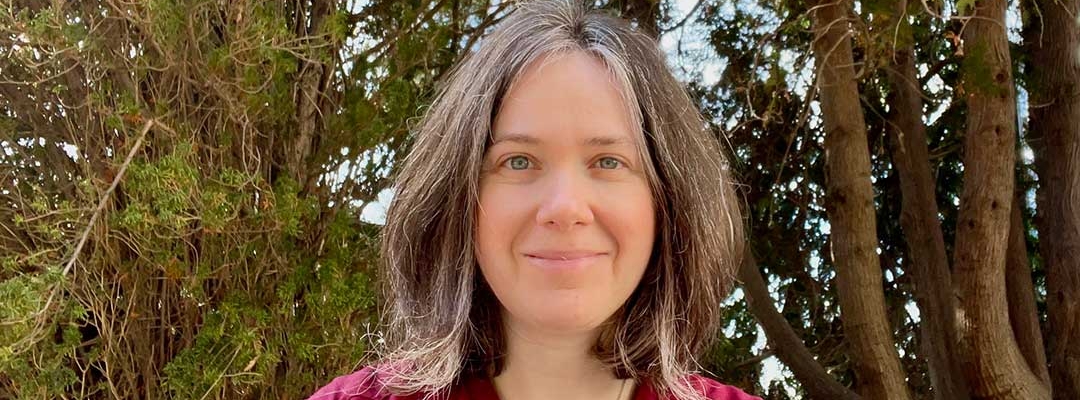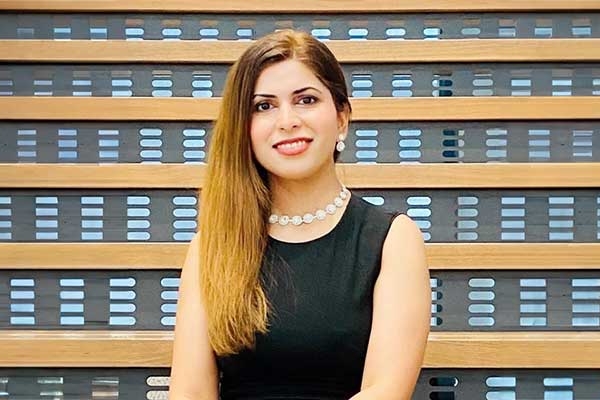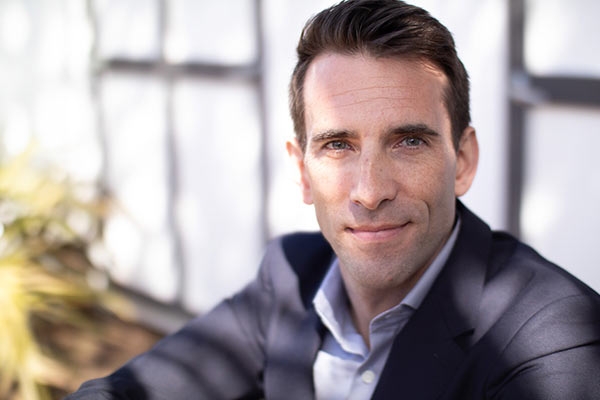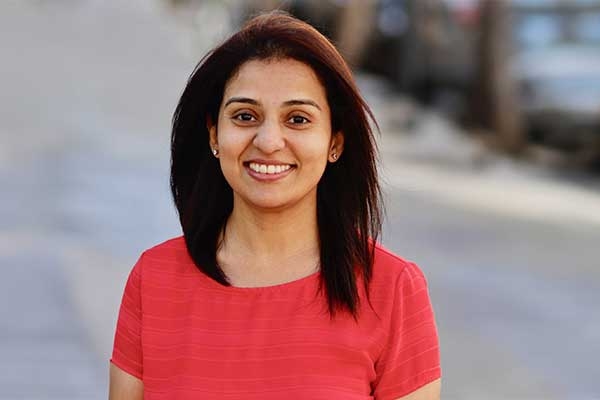The creative draw is strong with Hanna Bandalier. That first taste came while working as an editor and journalist at Houzz in her native Ukraine.
“When I was working in media,” Hanna recalls, “I worked very closely with our sales department and was always involved in content creation for marketing purposes or to support sales. And I found that I really enjoyed it.“
More than 70 published pieces later and a move to the United States—specifically to the San Francisco Bay Area—Hanna found herself reimagining her editorial expertise through a marketing lens.
It was time to up the ante with formal education.
“I was not ready to do a full master's degree because I already have a master’s in philology from Pedagogical University in Ukraine,” Hanna says. “When I found the UC Berkeley Extension marketing certificate, I knew it was a perfect fit for me. It’s a great way to switch your expertise or gain new skills in certain areas. And the Berkeley name carries a lot of weight—a perfect choice for me.”
Completing the certificate in just one year, Hanna is fully entrenched as a marketing manager at The Ansel Adams Gallery. Creative marketing work for a creative luminary.
I had the pleasure of hopping on a Zoom call with this 2019 graduate to find out more.
Your first gig in the Bay Area was as a marketing specialist at Gallery 925, focusing on building and executing a social media strategy. This was when you started the certificate, correct?
During my studies, I got my first part-time job at Gallery 925 and being a marketing student at UC Berkeley Extension was a big part of me getting this opportunity. At the gallery, I helped them go from a brick-and-mortar antique business to having a presence online—social media, advertising, building an e-commerce presence. It was a big step forward for the company. And now they call themselves a digital-first art gallery!
That’s great! So you were getting practical learning both in and outside of the classroom. Tell me about your courses.
We had great courses such as Marketing Management, Marketing Strategy and Marketing Research: Concepts and Techniques, which was interesting because it focused on the statistics around your marketing efforts. I also took a short introduction course about data visualization and learned about the software program Tableau.
I think it's important for people who switch into working as a marketer to get this formal knowledge base.
During my courses, I began to realize that I wanted to work as a marketing generalist, and this certificate was very helpful because I got to learn about email marketing, social media and analytics, content creation, copywriting and more. These are big subjects and each course helps you determine which direction you want to go in because the market offers different roles. You get the opportunity to try something new and test yourself through this really practical learning.
It's great to be able to implement and use all my skills from the certificate, especially email marketing and copywriting techniques because I’m now the voice of this brand.
How was your learning different or the same as when you received your master’s in Ukraine?
It was interesting for me to see how U.S. instructors interact with students, organize their lectures and use different case studies. It was completely different from my experience of studying in Ukraine.
Many of my instructors in the certificate are from the industry. This was precious because they shared case studies from real life, not just from the book. I can read the book by myself, but I wanted to learn more about the American marketing industry from people who work in marketing. My instructors were open to sharing their advice on how, for example, to get a job because the market here is very competitive.
In Ukraine, we were more focused on learning the hard skills to be successful, but here it's not enough. You need to know how to network, how to present yourself.
Also, students in Ukraine always worked on individual projects. Here, working in teams was something very new and sometimes challenging, but I learned how to be collaborative. So I would say not only did I get the hard skills, but also the many soft skills.
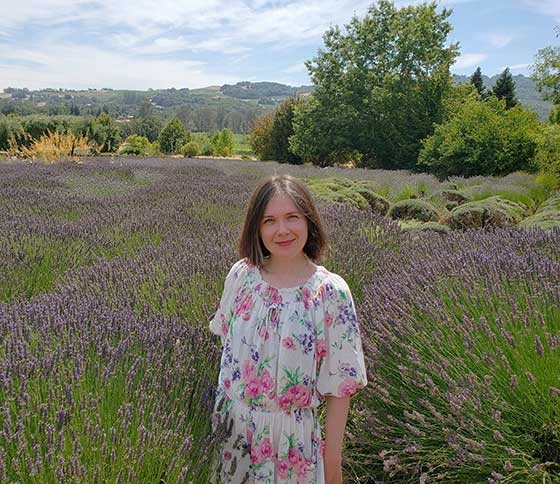
These are big subjects and each course helps you determine which direction you want to go in because the market offers different roles. You get the opportunity to try something new and test yourself through this really practical learning.
After completing the certificate, you continued working in the art sector.
I got a job as a digital marketing manager at The International Art Museum of America, a nonprofit in San Francisco. It was a big deal for me because I wanted to work in some way with art and design. I was a one-person marketing department, responsible for the whole strategy. I used all of the skills that I received from the certificate—from social media content creation to online advertising, managing Google Ad grants for the museum.
It was a turbulent time because soon after I got this job, the pandemic hit and we had to switch to virtual exhibition and online events, so I was learning new marketing techniques.
Now I’m working as a marketing manager with The Ansel Adams Gallery, which is a family-owned business run by the grandson of Ansel Adams, a famous landscape photographer and environmentalist. It's an honor to be part of this company and to market their art because these photographs are “artwork through artwork.” It's great to be able to implement and use all my skills from the certificate, especially email marketing and copywriting techniques because I’m now the voice of this brand. And this is a big responsibility for me as a non-native English speaker.
Where can we find you five years from now?
Maybe at my own art gallery! [Laughs]
The art world is something I’m really interested in. As a marketer, organically you may get to a point where you want to do something for yourself and perhaps start your own business.
What advice would you give to someone who's just starting the certificate?
It's really important to know that it's not only about studying but also about networking. Your classmates may be someone who can be your next colleague at your next job, give you some important advice or make an introduction. There are diverse people in your classes who work in different industries and you should take this opportunity to expand your circle.
What does earning the certificate mean to you?
Earning the certificate was my way of entering a professional career in the U.S. It's a great program, especially—I would like to emphasize—for high-skilled immigrants who need to have proof that we have this knowledge because finding your first job in the U.S. can be a long and difficult process. But when you have this UC Berkeley name, it's a very big deal.
